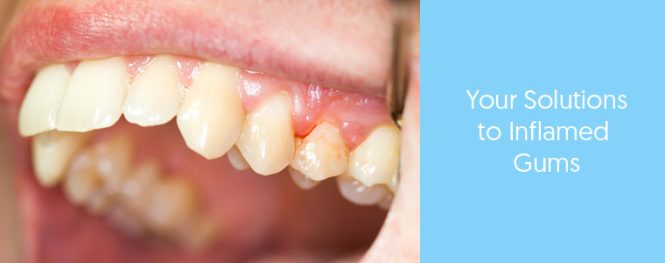

Experiencing swollen gums can be incredibly uncomfortable and unsettling. This comprehensive guide delves into the various reasons behind gum swelling, examining the potential underlying issues and providing actionable strategies for effective management. We’ll explore a range of causes from basic oral hygiene neglect to more complex medical conditions. This article will thoroughly explain the causes, symptoms, diagnosis, and treatment options. We’ll also address how to prevent swollen gums and when professional dental care is necessary.
Understanding the Discomfort of Swollen Gums
The Initial Symptoms and Potential Triggers
Swollen gums, a common oral health concern, manifest as inflamed and puffy tissues surrounding the teeth. The initial symptoms often include tenderness, sensitivity, and pain, especially when chewing or touching the affected area. Factors such as poor oral hygiene, inadequate flossing, and dietary habits can trigger inflammation in the gums. While minor swelling might resolve with improved oral care, persistent or worsening symptoms warrant prompt attention. This initial discomfort can be a sign of gingivitis, a mild form of gum disease, which, if untreated, can lead to more severe problems. Furthermore, certain systemic conditions can also contribute to gum inflammation, emphasizing the importance of understanding the underlying causes.
The Role of Oral Hygiene in Gum Health
The Connection Between Plaque Buildup and Inflammation
Maintaining excellent oral hygiene is paramount to gum health. Poor oral hygiene, characterized by inadequate brushing and flossing, allows plaque—a sticky film of bacteria—to accumulate on teeth and gums. This plaque buildup irritates the gums, leading to inflammation and swelling. Regular brushing and flossing remove plaque, preventing this accumulation and keeping gums healthy. Brushing techniques play a crucial role, ensuring that all surfaces of the teeth are cleaned effectively and that plaque between teeth is removed by flossing. Professional dental cleanings are also essential for comprehensive plaque removal.
Identifying Underlying Medical Conditions
Beyond Simple Oral Hygiene Issues
While poor oral hygiene often contributes to swollen gums, various medical conditions can also be a culprit. Systemic illnesses such as diabetes, autoimmune disorders, and certain medications can influence gum health, potentially leading to inflammation and swelling. Individuals with these conditions might experience more severe or persistent gum problems compared to those with good oral habits. Moreover, hormonal changes, particularly during pregnancy and menopause, can also affect gum tissue. The presence of these underlying conditions often necessitates a thorough evaluation by a healthcare professional to establish an accurate diagnosis and appropriate treatment plan.
Diagnosing and Treating Swollen Gums
The Role of a Dental Professional
A proper diagnosis of swollen gums begins with a comprehensive dental examination. The dentist will evaluate the severity of the inflammation, assess oral hygiene habits, and look for any signs of underlying conditions. They will also probe for pockets of infection between teeth and gums, and examine any unusual coloring or lesions. Diagnostic tools, such as X-rays, may be necessary to rule out underlying bone loss or infections. Once the cause is determined, a treatment plan tailored to the specific circumstances is developed. Treatments might range from simple oral hygiene recommendations to more involved procedures.
Preventing Gum Swelling
Maintaining Optimal Oral Health
Preventing swollen gums hinges on consistent and meticulous oral hygiene practices. Maintaining proper oral hygiene habits is crucial to prevent further inflammation and ensure gum health. Rely on a regimen of twice-daily brushing, meticulous flossing, and regular dental check-ups for a preventive approach. Choosing fluoride toothpaste and attending regular dental checkups and cleanings play an essential role in preventing gum problems.
Additional Factors Contributing to Swollen Gums
Dietary Habits
Certain dietary habits can also play a significant role in gum health, often triggering or exacerbating swelling.
The Importance of Regular Dental Check-ups
Proactive Detection and Intervention
Regular dental check-ups are indispensable for proactive detection and intervention in cases of gum swelling. Professional examinations enable dentists to identify potential issues early, intervene promptly, and promote overall oral health.
Long-Term Implications of Untreated Swollen Gums
The Progression to More Severe Conditions
Untreated swollen gums can escalate into more significant oral health concerns, such as periodontitis, which involves bone loss and tissue damage.
The Significance of Early Diagnosis
Optimizing Treatment Outcomes
Early diagnosis and treatment play a pivotal role in the successful management of swollen gums and related conditions.
There are certain considerations for those with swollen gums. This FAQ section will address some of those common questions.
What are the early warning signs of swollen gums?
Early warning signs of swollen gums often include tenderness, slight redness, and occasional bleeding when brushing or flossing. These are frequently accompanied by a feeling of irritation or discomfort. While these symptoms may not always indicate severe issues, their presence requires vigilance and prompts consideration of underlying causes.
How can I effectively manage swollen gums?
Effective management of swollen gums involves a combination of oral hygiene strategies and professional dental care. Diligent brushing and flossing remove plaque buildup, reducing irritation and inflammation. Prompt attention to any unusual symptoms, and proactive scheduling of dental check-ups for a thorough examination and personalized recommendations are also key aspects of this management.
In conclusion, swollen gums, while often uncomfortable, can be a symptom of various underlying issues. Recognizing the potential causes, from poor oral hygiene to more serious conditions, is crucial for effective management. Prioritizing regular dental check-ups, maintaining meticulous oral hygiene, and promptly addressing any unusual symptoms are key steps in ensuring gum health and overall well-being. Consult with a dentist for a proper diagnosis and personalized treatment plan. This proactive approach not only alleviates discomfort but also safeguards your long-term oral health.